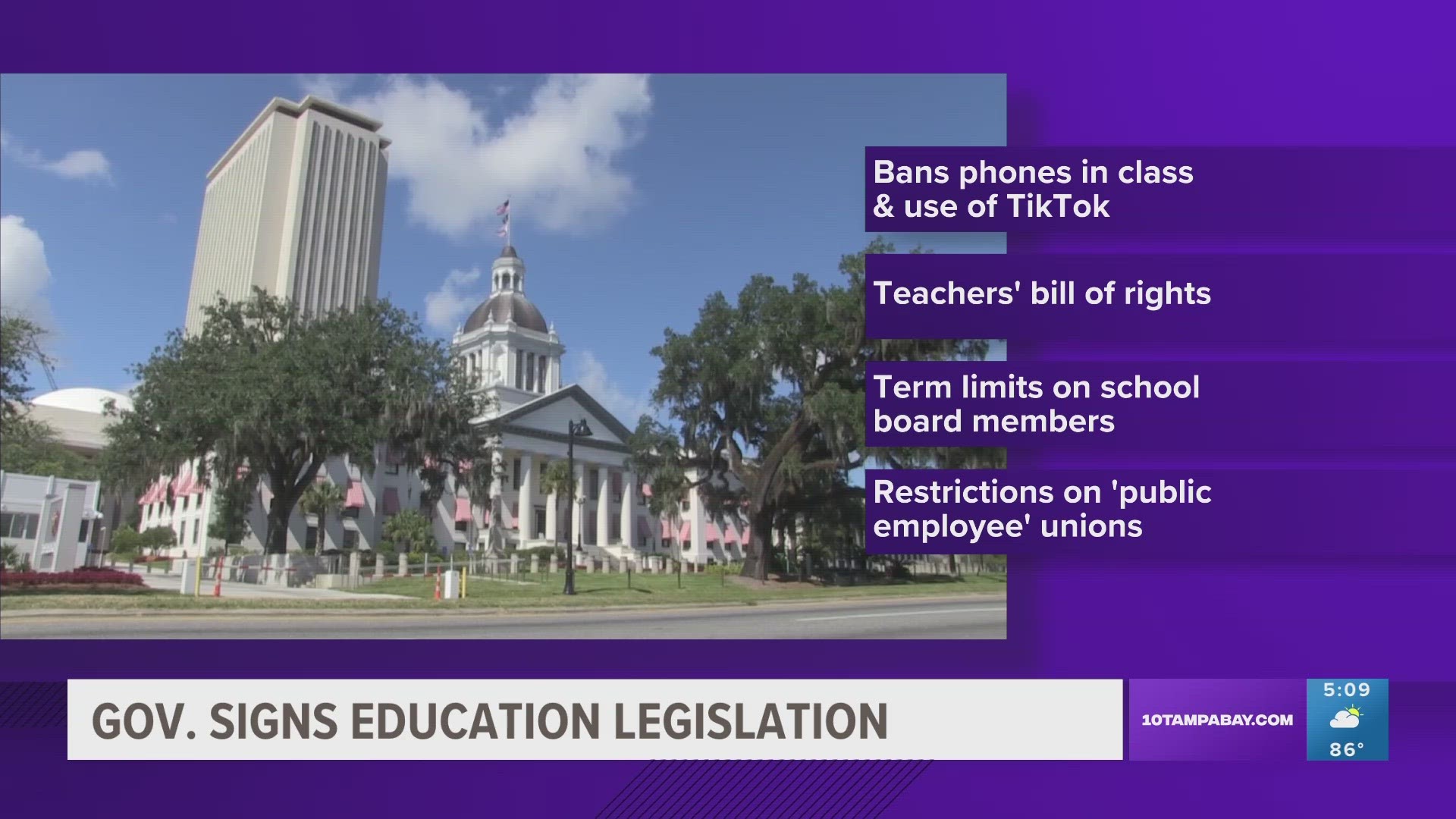MIAMI — Gov. Ron DeSantis pushed several education measures across the line Tuesday, setting the stage for some major changes coming to Florida classrooms in the coming school year.
In addition to approving the $1.05 billion set aside in the state budget for teacher pay increases, the governor signed five bills during a news conference at a Miami charter school.
“At the end of the day, you can put money into a school, you can have standards, you can have all that. But, if you don’t have a good teacher in the classroom, then you’re not gonna have kids perform up to their expectations," DeSantis.
Here's what the state's five new education laws will mean for Florida teachers and students.
According to DeSantis, this law will allow teachers to discipline students under the presumption that their actions were necessary to preserve safety.
"Teachers have a right to teach in an orderly and safe classroom. They have a right to ensure discipline in the classroom. That’s not only for their safety but also for the safety and learning experience of other students," he said.
It will also give teachers an avenue to report if they feel their administration is asking them to break the law.
HB 1035 will establish several programs aimed at getting more teachers in the classroom and giving them an incentive to stay there. These programs include:
- a signing bonus for first responders and veterans who want to become teachers
- a "Teacher Apprenticeship Program" as an alternative way for people to enter the profession
- A dual enrollment scholarship program for teachers to earn the credential to provide high school students with dual enrollment coursework
HB 1035 will go into effect on July 1.
Teachers and other government employees will have to write monthly checks if they want to stay in their union after DeSantis signed a bill that will block teachers' unions from automatically deducting dues from teachers' paychecks which, according to DeSantis, will lead to more take-home pay.
This will allow the state to see how many teachers are joining the union and ensure that the union represents at least 60% of employees, instead of the current 50%.
SB 256 went into effect immediately upon becoming law.
“If you want to join, you can, but you write a check and you hand it over. That is gonna lead to more take-home pay for teachers,” DeSantis said at the bill-signing ceremony.
This law extends the validity of a temporary teaching certificate from three years to five years. It will take effect on July 1.
"It eliminates the unnecessary bureaucracy and red tape with respect to certification. Sometimes the certification is keeping good people out," DeSantis said.
This law reduces school board term limits from 12 to eight years, or two four-year terms. It will go into effect on July 1.
This law will allow teachers to establish rules on when and how phones can be used in the classroom. It also requires school districts to prevent students from logging onto social media sites on school devices and servers.
The law specifically prohibits the use of TikTok on any school district devices and requires schools to teach about the dangers of social media.
“The social media, it has more problems than it solves and I think it does more harm than good," DeSantis said. And so let’s have our education system be as much about traditional education as we can."

